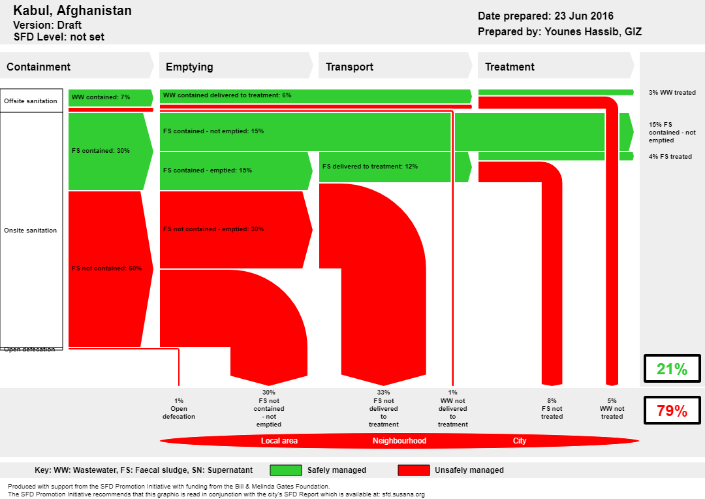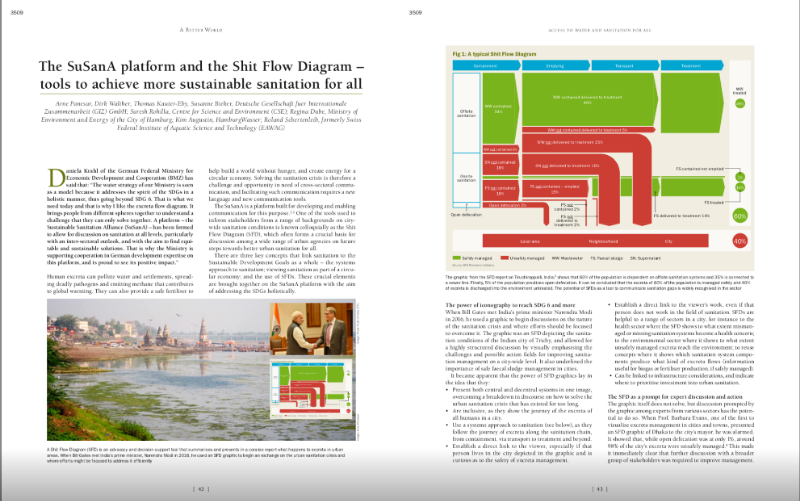- Forum
- categories
- Markets, finance and governance
- Cities (planning, implementation, and management processes)
- Shit flow diagrams (SFDs) / Excreta flow diagrams
- SFD Promotion Initiative (SFD PI) - Project Updates (Shit Flow Diagrams)
SFD Promotion Initiative (SFD PI) - Project Updates (Shit Flow Diagrams)
59k views
- Elisabeth
-
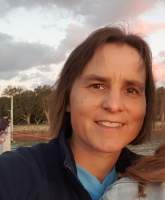
- Moderator
- Freelance consultant since 2012 (former roles: program manager at GIZ and SuSanA secretariat, lecturer, process engineer for wastewater treatment plants)
Less- Posts: 3372
- Karma: 54
- Likes received: 931
Re: SFD Promotion Initiative (SFD PI) - Project Updates (Shit Flow Diagrams)
Peal, A., Evans, B., Ahilan, S., Ban, R., Blackett, I., Hawkins, P., Schoebitz, L., Scott, R., Sleigh, A., Strande, L., Veses, O. (2020). Estimating Safely Managed Sanitation in Urban Areas - Lessons Learned From a Global Implementation of Excreta-Flow Diagrams. Front. Environ. Sci. 8:1. doi: 10.3389/fenvs.2020.00001
www.susana.org/en/knowledge-hub/resource...library/details/3848
From the abstract:
Funding:This paper describes a methodology for rapid assessment of sanitation in cities including a graphical representation (a shit-flow diagram or SFD) and reports on findings from implementation in 39 cities. The SFD provides high level information for planning purposes covering the entire sanitation system in a city. More than half of the human excreta produced in these cities is not safely managed. The most significant portions of the unsafely managed excreta are: (i) contents of pits and tanks which are not emptied and are overflowing, leaking, or discharging to the surrounding environment (14%); (ii) contents of pits and tanks which are emptied but not delivered to treatment (18%); (iii) fecal sludge and supernatant delivered to treatment but not treated (3%); (iv) wastewater in sewers not delivered to treatment (14%); and (v) wastewater delivered to treatment but not treated (6%). Many cities currently relying on onsite sanitation for safe storage, particularly in Africa, will need new strategies as populations grow. Containment systems that discharge to open drains are common in some Asian cities; these pose a public health risk. Dumping of excreta is widespread and there is a lack of realistic performance data on which estimates of the extent and effectiveness of treatment can be made. The SFD production process can be challenging due to a lack of data and low technical capacity in cities. There is often uncertainty over terminology and over the status of infrastructure. Formalizing definitions for the SFD preparation process was found to be useful in overcoming capacity constraints in cities. The SFD produces a credible snapshot of the sanitation situation in a city. The paper provides evidence of the urgent need for improved management and monitoring of urban sanitation in cities around the world and highlights the role of the SFD as a planning tool.
The work described in this paper was funded by the Bill & Melinda Gates Foundation under grant agreement SFD v1 (OPP1118283) and SFD v2 (OPP1140623). Funding for open access publishing of results from this grant is also financed under separate funding arrangements provided by the Bill & Melinda Gates Foundation.
The paper lists 3 failure modes for onsite sanitation:
- Failure Mode 1—Fecal Sludge Not Contained and Not Emptied From Onsite Sanitation Systems
- Failure Mode 2—Fecal Sludge and Supernatant Emptied/Discharged From Onsite Sanitation, but Not Delivered to Treatment
- Failure Mode 3—Fecal Sludge and Supernatant From Onsite Sanitation Delivered to Treatment, but Not Treated
- Failure Mode 4—Wastewater From Offsite Sanitation Systems Not Delivered to Treatment
- Failure Mode 5—Wastewater From Offsite Sanitation Systems Delivered to Treatment, but Not Treated
Elisabeth
P.S. Some critical aspects about SFDs were discussed here on the forum: forum.susana.org/204-shit-flow-diagrams-...sanitation-dialogues
Freelance consultant on environmental and climate projects
Located in Ulm, Germany
This email address is being protected from spambots. You need JavaScript enabled to view it.
My Wikipedia user profile: en.wikipedia.org/wiki/User:EMsmile
LinkedIn: www.linkedin.com/in/elisabethvonmuench/
Please Log in to join the conversation.
You need to login to reply- Mintje
-
 Less
Less- Posts: 21
- Karma: 2
- Likes received: 16
Re: SFD Promotion Initiative (SFD PI) - Project Updates (Shit Flow Diagrams)
Dear SuSanA Forum Users,
The SFD Promotion Initiative (SFD-PI) would like to share with you some results of our work, which kept us busy in the past months.
Wrapping up the Phase 2 of the SFD Promotion Initiative
After three years of hard work and intense collaboration, the Phase 2 of the SFD-PI has ended in October 2018. We are happy about the contributions and exchange with all of you in the past years.
The partners of the SFD-PI will continue to promote the SFD approach and to contribute to the better understanding of the path and fate of excreta flows in cities. The SFD web portal as part of the SuSanA platform will remain our key communication channel for updates on recent activities, news and events. We will be happy collaborate with individuals and organizations wanting to produce SFD graphics and reports in the future. Stay tuned for new developments and new SFDs for cities and towns all over the world!
Event reports
Training during WEDC Conference, Nakuru, Kenya
As part of the WEDC Conference 2018 held in Nakuru, Kenya, a capacity development workshop on SFDs was led by the SFD-PI. Trainers from WEDC, GIZ and Leeds University delivered this half-day workshop on the 9th of July. The training focused on understanding of SFDs and on the example of Nairobi, Kenya. Caroline Kabaria, PhD, from the African Population and Health Research Center (APHRC) and Alex Manyasi from Sanergy, presented the process, outcomes and potential impacts of preparing a SFD in Nairobi. The workshop was a success, where participants enjoyed discovering SFDs and being able to use the graphic generator through an exercise. They found it of high quality and relevant to their work.
Pictures of the SFD Capacity Development Workshop during WEDC Conference, Nakuru, Kenya
Series of trainings with AfWA (Abidjan, Kampala, Lusaka, Bamako, Yaoundé)
During the summer 2018, the SFD-PI collaborated with the African Water Association (AfWA) to led a series of SFD trainings, as part of AfWA’s RASOP Project (Strengthening the capacities of African sanitation operators through Peer Learning Partnerships). Five trainings were organized in five different cities: Abidjan (25th June 2018), Kampala (25-26th July 2018), Lusaka (31st July-1st August 2018), Bamako (support only, 9-10th August 2018) and Yaoundé (21-22nd August 2018). They aimed at reinforcing the capacities of sanitation stakeholders for the five countries. Participants were working for various institutions and organizations: ministries, water and/or sanitation utilities, municipalities, development agencies, non-governmental organizations, etc. During these five trainings, participants were trained on SFDs, their process, uses and on how to prepare their own SFD.
Four of these five trainings lasted two days, which allowed for extensive participation of participants and hands-on exercises. Most participants felt capable of using and passing on their new knowledge after the training.
Pictures from the SFD training in Abidjan, Ivory Coast, 25th June 2018
SFD Webinars
Within September 2018, CSE organized two webinars on the 14th and 28th. The first webinar was titled “Different Variations of SFDs” and was aimed at bringing SFD developers together to discuss the differences in the various aspects of SFDs such as the methodology. The second webinar titled “Various Applications of SFDs” was aimed at discovering further possibilities of application of SFDs. Both webinars can be found within the SFD Resources .
SFDs at the Stockholm World Water Week
The SFD-PI officially launched the SFD online training at the Stockholm World Water Week in August 2018. A session was held at the SuSanA booth to enable delegates of the conference to experience the new training first-hand, and to understand how the online training will be able to assist them in producing their own SFDs in the future. A further session by the SFD-PI was run to allow delegates to raise any issues or problems that they have encountered during their involvement with the SFD creation.
At the conference, SFDs were discussed within the session “Sanitation in small towns: challenges for the environment and development”, where participants were invited to join five discussion tables on financial viability of sanitation services; Capacity building; Incentives for small towns; Sustainability of service: monitoring and evaluation, and equity aspects in small towns. At the latter, SFDs and their potential to analyse and highlight equity aspects were explored based on research done by Zachary Burt (Columbia University) in three urban areas in India in collaboration with GIZ. Part of the work is dealing with the question on how equity aspects could best be integrated in the SFD graphic.
The SFD was also presented within the session “Faecal waste and its mysterious movement through urban ecosystems” by GIZ and CSE. During this session, discussions were held on how research on faecal flow pathways can positively support practice and policy.
Resources Updates
SFD Online Survey
In April 2018, the SFD-PI launched an online survey. The survey ran for three weeks and collected opinions and feedback on different aspects of the SFD project, including the web portal, the manual, various tools, the activities developed by the SFD-PI and the use of SFDs in general. The output of this survey is valuable to the SFD-PI for improving the tools and methods available as well as the overall approach of the SFD-PI. Thanks go to all the people who have taken the time to answer it.
This survey has proved to be very informative for the SFD Promotion Initiative. The key points identified from the survey responses are:
1) Human interaction has been the main vector of dissemination of the SFD methodology (discussions on SuSanA website, conferences, word of mouth).
2) Most respondents who prepared an SFD had support from the SFD-PI (training, online and in-field support). This support was found very useful to produce an SFD.
3) All tools are seen as useful, user-friendly and accessible.
4) The visibility of the SFD tools is limited, causing low use.
5) Language of the tools limits their accessibility and uses.
Following this survey, the SFD Promotion Initiative has taken measures to ensure a better experience for SFD users. This includes:
a) Increase promotion of SFD tools, especially through the new SFD Website;
b) Encourage submission of SFD reports by respondents who prepared an SFD that is currently not included on the website’s worldwide database;
c) Encourage the use of Report Templates by SFD users;
d) Translate tools into other languages; and
e) Review how to improve the identification of sanitation systems, based on the SFD methodology.
The survey report can be found here .
Updated SFD Report Templates
New templates for SFD reports ( SFD Report Template , SFD Lite Report Template ) and complementing Guidance notes ( SFD Report – Guidance Note , SFD Lite Report - Guidance Note ) were produced and released on Tools and Report Templates on the SFD Portal.
SFD Manual in French / Arabic now available!
To reach a wider community, the SFD Manual was recently released in French ( Manuel d’élaboration des SFD ) and Arabic .
New guidance material available!
Based on frequent questions that we receive via the SFD Helpdesk, the SFD-PI prepared and uploaded three additional guidance material to support the preparation of SFDs using the SFD Graphic Generator (SFD GG):
1. Step 1 - Sanitation system classification tool : Selecting the most appropriate sanitation systems from the SFD Selection Grid is not always straightforward. The purpose of this classification tool is to help SFD producers select the most appropriate sanitation. By answering a series of questions on the types of sanitation technologies (toilets, sewers, septic tanks, pits, open drains etc) in use in their city and how they function, the tool will help identify which sanitation system to select from the selection grid. Access the Sanitation system classification tool
2. Step 2 - Understanding the SFD Graphic Generator , since the use of the Graphic Generator can be a bit confusing.
3. Downloading / uploading JSON files
How to download / upload SFD JSON files? – Do you know that you can save a local copy of the SFD Graphic that you are working on and resume your work on a later point? It is a cool feature of the SFG Graphic Generator. For that, you will need to download a JSON file. This document will show you step by step how to download the all the files generated by the SFD GG.
SFD Online Training
The SFD-PI is very happy to announce the launch of the SFD Online Training. Developed by WEDC, it is now available on our web portal here .
The aim of this training is to give a thorough introduction into SFDs. It teaches you key points regarding what SFDs are, what they can be used for, how to read a SFD, how to create a SFD report and a SFD Graphic, and how to submit your SFD for review. Composed of seven short modules, SFD beginners and SFD users in need of a reminder should find our new online training very useful! Let us know what you think of it!
SFD Dashboard
The SFD Data page, gives an overview of the current set of data for all cities covered by an SFD. The automatically generated graphs show the compiled data for all cities and allow for comparing key features of the SFDs across regions and topics.
While the SFD worldwide is one way to find published SFD reports and get an idea of the regional activities with respect to the production of SFDs on the world map, the SFD Dashboard offers the user a different overview of the current SFD database.
New SFD Reports Online
The SFD-PI has recently published 32 new SFD reports that bring insights on sanitation in 15 countries.
20 of them were commissioned by GIZ and prepared by WaterAid and GFA Consulting GmbH: Saidpur (Bangladesh), Manaus and São Paulo (Brazil), Ouagadougou and Ouahigouya (Burkina Faso), Battambang and Kampong Chhnang (Cambodia), Douala and Yaoundé (Cameroon), Wa (Ghana) Kakuma and Mavoko (Kenya), Lahan (Nepal), Bilwi (Nicaragua), Enugu City (Nigeria), Jatoi and Thatta (Pakistan), Buon Ma Thuot and Da Lat (Vietnam), and Lusaka (Zambia).
WaterAid further prepared an SFD report for Kasungu (Malawi), ENPHO prepared a report for Itahari (Nepal), and WASHTED prepared a report for Blantyre (Malawi).
Seven new SFD reports from India were prepared by CSE for the cities of Bodhgaya, Bongaon, Buxar, Chunar, Gangaghat, Katihar, Ramnagar, and one report by C-WAS/CEPT for Panchgani. Additionally, GIZ prepared a SFD report for Rishikesh (India).
All new SFD reports can be found here .
Stay tuned for the upload of 8 finalized SFD reports from Bangladesh and 2 from India, and many more that are in the final preparation phase.
Upcoming!
SFDs @ FSM5
CSE and GIZ conducted a ½ day workshop on how to prepare an SFD in a joint session with Borda and the Bill and Melinda Gates Foundation on Planning, Guiding and Monitoring Transition to Citywide Sanitation Service Systems: Tools and Experiences. Stay tuned for a snapshot of the workshop in the next SFD-PI Update!
SFD Week in India
CSE will be hosting an SFD Week with the focus on “Designing and Implementing Affordable and Sustainable Citywide Sanitation for All” in Rajasthan, India. The event will be taking place from the 2nd to 5th of April. Stay updated !
You can also follow our latest news on Twitter @SFD_PI
If you have any questions or comments, please contact us at This email address is being protected from spambots. You need JavaScript enabled to view it.
Kind regards
Mintje
SuSanA Secretariat, SFD-PI Secretariat
Sector Program Sustainable Sanitation
Deutsche Gesellschaft für Internationale Zusammenarbeit (GIZ) GmbH
E This email address is being protected from spambots. You need JavaScript enabled to view it.
Attachments:
-
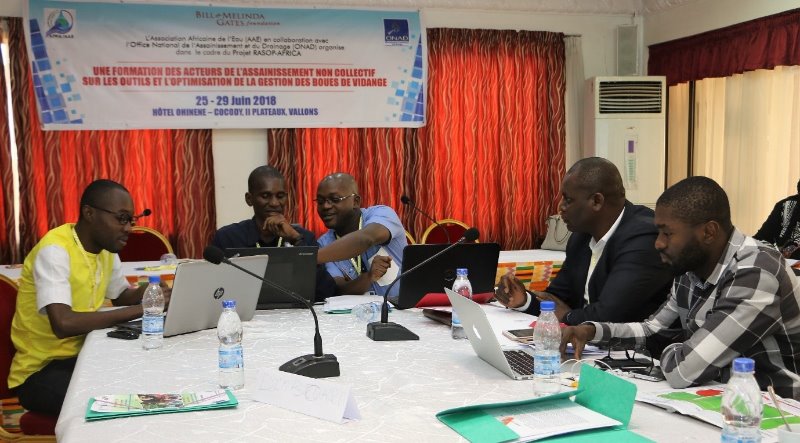 Training_A...an_1.jpg
(Filesize: 88KB)
Training_A...an_1.jpg
(Filesize: 88KB)
-
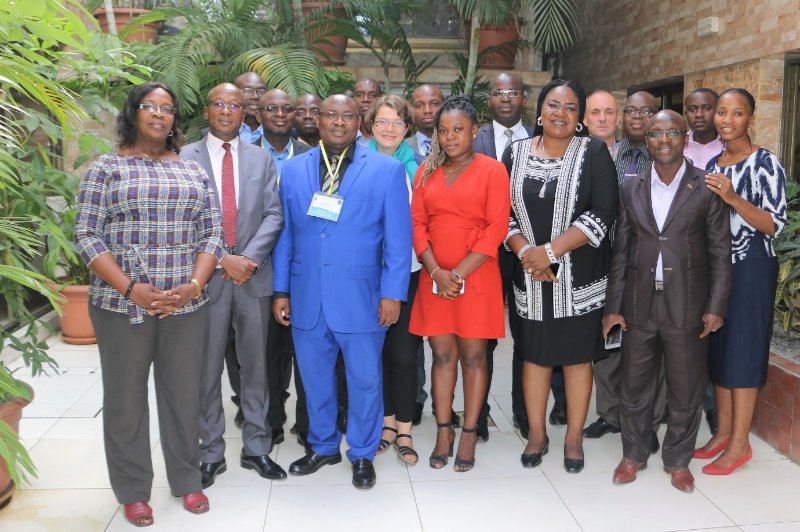 Training_A...an_2.jpg
(Filesize: 107KB)
Training_A...an_2.jpg
(Filesize: 107KB)
-
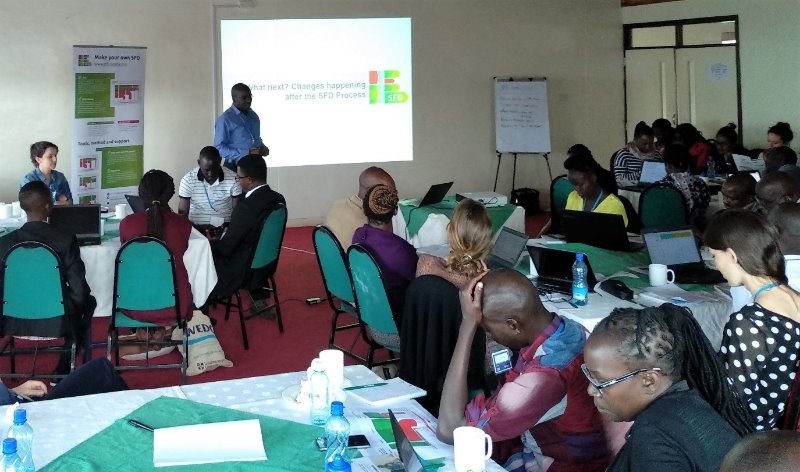 Training_Nakuru_1.jpg
(Filesize: 86KB)
Training_Nakuru_1.jpg
(Filesize: 86KB)
-
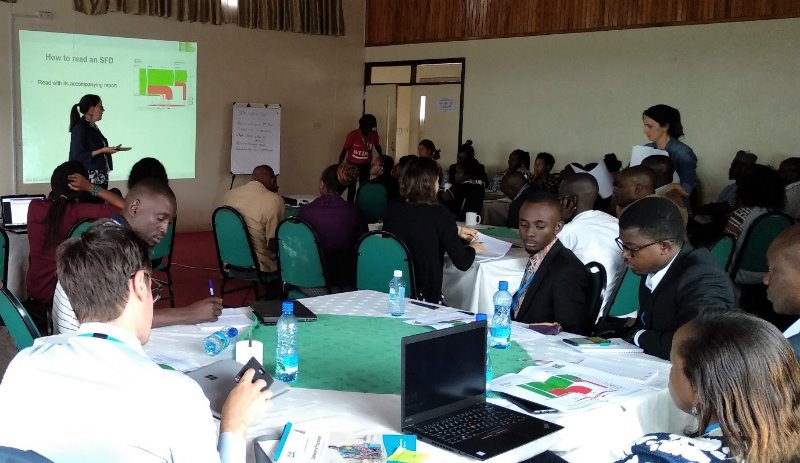 Training_Nakuru_2.jpg
(Filesize: 78KB)
Training_Nakuru_2.jpg
(Filesize: 78KB)
-
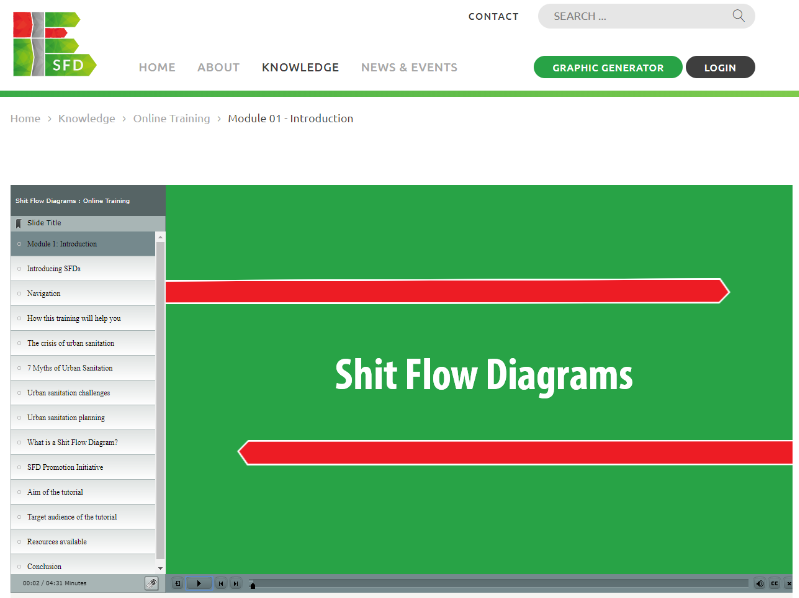 SFD_Online...ning.png
(Filesize: 71KB)
SFD_Online...ning.png
(Filesize: 71KB)
-
SFD_Data.PNG (Filesize: 61KB)
-
SFD_Manual...ions.PNG (Filesize: 219KB)
Please Log in to join the conversation.
You need to login to reply- Alix
-

- PhD student in Urban Sanitation Looking at regulation of emptying and transport services for faecal sludge in LMIC
Less- Posts: 12
- Likes received: 6
Re: SFD Promotion Initiative (SFD PI) - Project Updates (Shit Flow Diagrams)
Dear SuSanA Forum Users,
The SFD Promotion Initiative (SFD PI) (sfd.susana.org) would like to update you on our most recent activities and news.
Meeting in Bonn
The SFD PI met on May 8th and 9th in Bonn, Germany. The PI team showcased the work it had accomplished since the beginning of the project to its donors, such as the BMZ (German Federal Ministry for Economic Cooperation and Development) and GIZ’s direction of Global and Sector programs. The PI team also reviewed the work it had accomplished throughout Phase 2 of the SFD PI project and started planning ideas for the future of the project.
from left to right: Bhitush Luthra (CSE), Thilo Panzerbieter (GTO), Dr. Susanne Bieker (GIZ), Rebecca Scott (WEDC), Dr. Suresh Kumar Rohilla (CSE), Dr. Arne Panesar (GIZ), Radu Ban (BMGF), Dr. Linda Strande (Eawag), Alix Lerebours (WEDC), Cecilia Rodrigues (GIZ), Anna Kristina Kanathigoda (GIZ), Prof. Barbara Evans (UofL), Christène Razafimaharo (GIZ), Mintje Büürma (GIZ)
From left to right: Dr. Suresh Kumar Rohilla (CSE), Dr. Arne Panesar (GIZ), Franz Marré (BMZ)
New SFD Webportal
The SFD Webportal is getting a makeover – stay tuned for the upcoming launch of the new Webportal, with improved features to discover the world of SFDs.
SFDs Worldwide
Training on Effective Faecal Sludge and Septage Management for Mainstreaming Citywide Sanitation, Nimli, India – 29-31 May 2018
The Centre for Science and Environment (CSE) has conducted a two state-level training on FSSM at School of Water and Waste. Participants were technical functionaries from Odisha, Uttar Pradesh, Bihar and West Bengal. A 90 mins SFD session was included in the trainings. Moreover, this session was leaned on sensitization and promotion of SFD and to bring people to OLC who will show interest for the SFD.
SFDs in Afghanistan
SFD graphics and reports are currently under production for 6 of Afghanistan’s largest cities. This represents 72% of the country’s population. The SFDs were created by the municipalities themselves (under guidance of GIZ) and will be updated regularly to continue improving the local database. By discussing and developing the SFDs, the public utilities enhance their understanding and competence in wastewater treatment and faecal sludge management. The SFDs will also help to prioritize investments.
Upcoming!
Online course on preparation of the Shit Flow Diagram (SFD)
The e-course will provide hand on experience to state and non-state actors to prepare SFD for towns and cities. The course will give you the necessary knowledge to describe what an SFD could be used for, prepare your own SFD and use the tools and methods used for preparation of SFD graphic and report.
This training is intended for anyone who wishes to prepare an SFD report for a town or a city. Whether you are working for a local, regional or national government, an NGO, a University, or if you are just interested in learning more about SFDs, this training is for you.
You can apply here: www.cseindia.org/sfd-olc-8621
Online training for SFDs
The e-course will provide hand on experience to state and non-state actors to prepare SFD for towns. It will be available on the SFD Website this summer. We'll keep you updated!
Upcoming SFD report
Many SFD reports are near completion of the review procedure and will soon be published on our website. Stay tuned!
Doctoral researcher
WEDC
Loughborough University, UK
Attachments:
Please Log in to join the conversation.
You need to login to reply- Alix
-

- PhD student in Urban Sanitation Looking at regulation of emptying and transport services for faecal sludge in LMIC
Less- Posts: 12
- Likes received: 6
Re: SFD Promotion Initiative (SFD PI) - Project Updates (Shit Flow Diagrams)
March 2018
Dear SuSanA Forum Users,
The SFD Promotion Initiative (SFD PI) ( sfd.susana.org ) would like to update you on our most recent activities and news.
Would you have any questions, you can contact us at: This email address is being protected from spambots. You need JavaScript enabled to view it.
Live Q&A session and Call for SFDs
The SFD Promotion Initiative held the “Live Q&A session on the SFD Tools and Methods” on December 4th, 2018 at 14:00 CET. You can find the recording here:
It aimed at providing you with first-hand information that will ease the production of SFDs. This session was part of the ‘Call for SFDs’, an initiative to encourage and foster the production of SFDs worldwide.
The Call for SFDs allowed us to collect several SFD reports, which are now under review or already published on our website ( sfd.susana.org )!
Review Panel Meeting, Leeds (14-15 December 2017)
The University of Leeds hosted an SFD review panel. The SFD team reviewed new reports from different regions with the main objective of assessing and optimising the new review procedure and making the results of assessments available to a wider audience.
New SFD Reports
In the previous months, the SFD for Tikapur (Nepal) and for Patna (India) have been published on the SFD website.
You can find the SFD report for Tikapur here: sfd.susana.org/sfd-worldwide/cities/74
And the SFD report for Patna here: sfd.susana.org/sfd-worldwide/cities/75
Other reports are under review by the SFD team and will be published in the coming weeks. To submit your own SFD, visit and register on our website: sfd.susana.org/dashboard
Resources Updates
Updated template and guidance note for the SFD Lite report
As an addition to the three levels of SFD reporting explained in detail in the SFD Manual, the SFD lite is a simplified reporting template that summarises just the key information underlying your SFD graphic. It’s a 4 to 5 pages document including the SFD Graphic, brief contextual information and the record of data sources used. You can find the template and the guidance note here:
www.susana.org/en/knowledge-hub/resource...library/details/2357
The international publication 'Better World' of United Nations on SDG Goals - published a co-authored paper.
The paper and illustrations how SFD and other activities of water programme feed into SDGs as well as global processes and dialogues including how CSE Water Programme work connects with overall sustainable water management aimed at developing south-south partnership and/or north-south knowledge exchange on best management practices.
SFDs Worldwide
CSE is preparing SFD for Tema Metropolitan Assembly, Ghana (14-20 January 2018)
CSE’s team visited Tema from 14th to 20th January 2018. The objectives of the visit were to:
1. Understand the current initiatives by the Tema Metropolitan Assembly on Sanitation with a focus on wastewater and faecal sludge
2. Perform a reconnaissance survey to focus on understanding the on-ground situation of excreta and wastewater management practices in the metropolitan assembly
3. Collect any and all available baseline data which would help us in triangulation and presentation of the sanitation situation through our Shit flow graphic such that the metropolitan can act accordingly in improving the current scenario
Here are a few preliminary key findings from the field:
1. Tema Metropolitan has a mid-term action plan and a metropolitan environmental sensitivity plan which have an implementation span of 4 years. The two documents are used to prioritize the current area of focus, one of which is provisioning of toilets in line with a national level project (GAMA)
2. As per ground observations, there is humongous dearth of toilets, both public and household, in urban poor which is the heightened cause of open defecation and in turn, have increased diseases
3. The TMA has a community development office which is carrying out IEC activities to educate the citizens of the city regarding sanitation issues and providing skill development to empower people to earn, which in turn will help in increasing the standard of living among the vulnerable and poor
Ethiopia: SFD Preparation for Woliso
The University of Leeds is providing online support to Tetra Tech, a leading provider of consulting and engineering services working on sanitation in small towns in Ethiopia in an USAID-funded project. They have completed a baseline assessment and, since they want to produce a SFD for Woliso (Ethiopia), they requested our assistance to help them in the process.
Kenya: SFD preparation for Nairobi and other county governments
The University of Leeds is supporting APHRC and the Nairobi County Government to complete a consultative SFD for Nairobi. The final report and agreed SFD should be available in the next month, hopefully almost immediately for review on the website.
Also in Kenya, Nakuru County are in the process of updating their SFD and several other county governments have requested information about how to launch the process. At a recent national workshop on sanitation convened by the Ministry of Health and the World Bank, the SFD approach was presented to 50 representatives of county governments.
Ghana: Training on SFDs and Wastewater treatment
In February, Loughborough University (WEDC) assisted with training at KNUST, Kumasi, Ghana, as part of a ten-day programme on “Shit Flow Diagram (SFD) & Wastewater Treatment for Metropolitan, Municipal & District Assemblies (MMDAs)”. Training was provided jointly by staff from KNUST and WEDC, funded by UNICEF Ghana, to contribute to the professional development of MMDA staff. About twenty of the participants were engineers and planners from various Ghanaian municipalities and districts. They were joined by a few postgraduate students from KNUST University. All participants were fully engaged in the training, and evidently enjoyed it. The first two days of the course covered principles and practical applications of both SFDs and wastewater treatment methods.
Training on Preparation of Shit Flow Diagram (SFD)- For Improved Urban Sanitation Programming at City-Wide Scale
Centre for Science and Environment (CSE) is organizing a full day training on “Preparation of SFD” at the upcoming SuSanA India Chapter meeting, 2018 in Panaji, Goa. The training is for sanitation and faecal sludge management sector players, practitioners and city stakeholders who have the interest to learn about this tool.
The aim is to learn 'how to prepare SFD' by using newly developed SFD graphic generator for improved urban sanitation programming at city-wide scale. On completion of the training the participant will be able to:
• Understand SFDs (graphic and report) and the history of their development
• Understand the need for a standardized methodology
• Understand the available tools including their context, range and how to use them
• Use the developed tools to go through a worked example
• Understand the support available to enable the development of SFD for their city
You can find more information here: old.cseindia.org/content/training-prepar...hit-flow-diagram-sfd
Upcoming!
New translation of SFD video in Bahasa Indonesia
The video on SFDs prepared by Eawag ( sfd.susana.org/resources/videos-sfd#8AomexvJ-4c ) is in the process of being translated into Bahasa Indonesia by Urban Sanitation Development Program (USDP). The link will be shared on the SFD website once the video is ready.
Doctoral researcher
WEDC
Loughborough University, UK
Attachments:
Please Log in to join the conversation.
You need to login to reply- Alix
-

- PhD student in Urban Sanitation Looking at regulation of emptying and transport services for faecal sludge in LMIC
Less- Posts: 12
- Likes received: 6
Re: SFD Promotion Initiative (SFD PI) - Project Updates (Shit Flow Diagrams)
November 2017
Dear SuSanA Forum Users,
The SFD Promotion Initiative (SFD PI) (sfd.susana.org) would like to update you on our most recent activities and news.
Global Call for SFDs!
The SFD PI is proud to announce a global call for SFDs. Have you started preparing your own SFDs using the SFD Graphic Generator? Have you completed it? Where do you stand?
After a period of refinement and testing the tools for the production of SFDs (see below for more information), we would like to invite and encourage you to use out. We would like to give an extra push, so you can have your SFDs ready and used in your processes.
You can find the call for SFDs here: sfd.susana.org/news-events/events/108-global-call-for-sfds
Events Reports
Stockholm World Water Week
The SFD-PI was present in Stockholm this year and contributed to several activities and sessions:
• We organized the ‘SFD Exchange’ at the SuSanA booth between the 27th August and the 1st of September. Here are the presentations:
Indonesia:
Africa:
• In the double session “Safely managed sanitation in small towns: lessons from recent experiences and key challenges under scrutiny”, a couple of local experiences with SFDs were shared, amongst then, the experience of WaterAid on building capacity for urban sanitation planning in Ethiopia:
www.susana.org/en/knowledge-hub/resource...library/details/2875
• The session Operationalizing citywide inclusive sanitation: Right tools? Right use? addressed effectiveness and impact of certain tools, including SFDs at the city level. Link to documentation: citywideinclusivesanitation.wordpress.com/news/
Resources Updates
Here is a collection of new resources available on our website:
• The offline Graphic Generator
To complement the online Graphic Generator, an offline version (available for Mac and Windows) is now available! It will allow you to work on your SFD graphic even when you are not online, or when your internet is weak.
Mac: sfd.susana.org/graphic-generator/offlineversion/macosx
Windows: sfd.susana.org/graphic-generator/offlineversion/windows
• New SFD lite template
We are now providing an alternative to the three levels of SFD reporting explained in detail in the SFD Manual, the SFD Lite. The SFD Lite is a simplified reporting template that summarises just the key information underlying your SFD graphic.
www.susana.org/en/resources/library/details/2357
• New Review Procedure
The Review Procedure provides guidelines for SFD authors that would like to have their SFD reviewed by the SFD PI. The standardised review procedure offers you the possibility for having your work reviewed by peers and ensures that SFD graphics and reports meet some basic criteria and are of high quality. Finally, it enables you to have your SFD published on the SFD Portal contributing to the better understanding of excreta management worldwide.
www.susana.org/_resources/documents/defa...357-7-1510320026.pdf
• Source evaluation tool
The source evaluation tool is a tool that supports you in assessing the quality and credibility of the data sources used for preparing your SFD.
www.susana.org/en/resources/library/details/2357
• User’s check list
The User’s Checklist is a rapid assessment on your work, done by yourself. It consists of 16 questions.
www.susana.org/en/resources/library/details/2357
• Videos
The SFD-PI also produced two videos presenting the SFDs and their uses.
CSE video:
Indonesia videos:
SFDs Worldwide
India: Advocacy
CSE has been conducting Advocacy activities in India, promoting SFDs and the need for faecal sludge management.
• Meeting with Principal Secretary of Uttar Pradesh on 24/08/2017
cseindia.org/content/cse%E2%80%99s-initi...-principal-secretary
• CSE advocating FSM for non-sewered town/cities of UP at ‘Swachta hi Sewa’; dated: 19/09/2017
cseindia.org/content/cse-advocating-fsm-...hta-hi-sewa%E2%80%99
South Africa: Workshop Excreta Flow Diagram: A Sanitation Planning Tool (21 September 2017)
This workshop provided a background to the tool, how it aids sanitation planning, how to prepare one, and case examples. The WRC with the assistance of its stakeholders aims to apply the tool and its standardised methodology in South Africa with the ultimate objective of performing a national diagnosis of excreta management and establishing the regional capacity within South Africa to prepare high-quality excreta flow graphics.
CSE, one of the partners of the initiative, introduced the tool and provided training on how to prepare an SFD for their province, city or town.
cseindia.org/content/excreta-flow-diagra...tation-planning-tool
Bangladesh: Faecal Sludge and septage management training, Bangladesh (06-09 November 2017)
CSE and Water Aid Bangladesh (WAB) jointly organised a 3-days training programme for capacity building of practitioners, academicians and government officials from Bangladesh on Faecal Sludge and Septage Management (FSSM). The goal was to create an enabling environment for mainstreaming FSSM in Bangladesh and across South Asia.
cseindia.org/content/training-faecal-slu...ge-management-fssm-0
Zambia:
The University of Leeds provided online support on the REACH program: “A situational analysis of the water security, sanitation and hygiene status of Kafue district”, including the development of a SFD for the city of Kafue (Zambia), in collaboration with the University of Zambia, the London School of Hygiene and Tropical Medicine and the Centre for Infectious Disease Research on Zambia.
Mali: Make your own SFD training
As part of the RASOP project from the African Water Association, ten participants from five mentee cities and two from two mentor cities attended a training in Bamako on Shit Flow Diagrams. The trainers from GIZ and WEDC gave them the tools and methodology needed to produce their own SFD.
Upcoming!
Live Q&A session on the SFD Tools and Methods (4th December 2017)
The SFD Promotion Initiative is glad to invite you for the “Live Q&A session on the SFD Tools and Methods”. Please join us December 4th, 2018 at 14:00 CET.
We would like to provide you with first-hand information that will ease the production of SFDs. This session is part of the ‘Call for SFDs’, an initiative to encourage and foster the production of SFDs worldwide. In this live session, the SFD Promotion Initiative will be happy to present you the most recent versions of the guidance documents, including the SFD Manual – volume 1 and 2 and the SFD Review Procedure. We will then answer all the questions you may have about SFDs. Please join us!
Registration link: www.susana.org/en/sfd-question-session
New SFD Reports
CSE has prepared comprehensive SFD reports of 10 Ganga basin cities (Chunar, Gangaghat, Katihar, Muzzafarpur, Ramnagar, Bansberia, Bijnor, Bodhgaya, Bongaon, Buxar). They have been submitted and will soon be one the webpage.
Review Panel Meeting, Leeds (14-15 December 2017)
The University of Leeds will host the SFD review panel. The SFD team will review new reports from different regions with the main objective of assessing and optimising the new review procedure and making the results of assessments available to a wider audience.
Any other business
SFDs at FSM toolbox
Since early October, the SFD approach composes the suite of tools available in the FSM Toolbox, developed by the Asian Institute of Technology (www.fsmtoolbox.com/view-all-tools/?first-filter=tools)
SFDs at the MEDS Annual Convening 2017
Arne Panesar (GIZ) on behalf of the SFD PI has presented and discussed the SFD approach at the convening The Bill & Melinda Gates Foundation on November 6-10, 2017, in Patna, India. The annual convening of Foundation gathers grantees and partners engaged in developing, exploring and testing sanitation service delivery. The focus of the convening is on sharing and learning and the location that is selected each year offers opportunities for field visits and local engagement.
Cactus
University of Leeds has recently started working on a separate project in partnership with BMGF. The CACTUS project is looking at costs of urban sanitation systems.
Doctoral researcher
WEDC
Loughborough University, UK
Attachments:
-
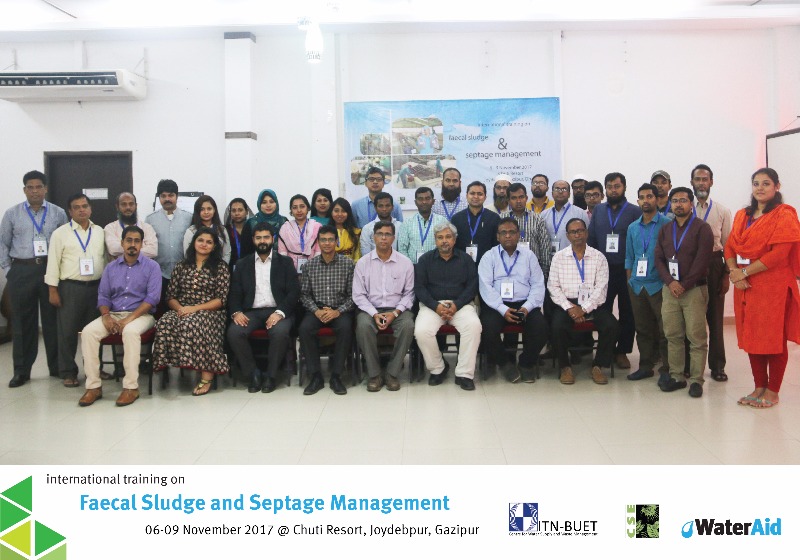 171105FSSM...7-01.jpg
(Filesize: 150KB)
171105FSSM...7-01.jpg
(Filesize: 150KB)
-
 trainingphoto.png
(Filesize: 1,031KB)
trainingphoto.png
(Filesize: 1,031KB)
Please Log in to join the conversation.
You need to login to reply- arees
-
 Less
Less- Posts: 2
- Likes received: 1
Re: SFD Promotion Initiative (SFD PI) - Project Updates (Shit Flow Diagrams)
The SFD Promotion Initiative (SFD PI) ( sfd.susana.org) would like to update you on our most recent activities and news.
Events Reports
The SFD PI team were at Loughborough University, England in July attending the 40th WEDC International Conference. We would like to say a special thank you to all those who joined us at any of our events and workshops. SFDs featured throughout the week and some highlights included:
- The Translating Sanitation Tool Results to Policy side event co-hosted by the Center for Science and Environment
- Isabel Blackett, Peter Hawkins and Rebecca Scott’s capacity development workshop on City-wide Sanitation Advocacy and Planning: tools for FSM diagnostics and project planning
- The SFD PI’s capacity development workshop on how to create your own SFD
Photo 1: WEDC Conference Participants in the make your own SFD workshop present the SFD they developed through the group exercise (Photo credit: Rod Shaw, WEDC).
Resources Updates
Latest SFD Graphic Generator: We are happy to announce that the latest version of the SFD Graphic Generator is now available both online and offline. This version is ready for download and comes with a feature that allows you to keep working on and save your SFD even when you aren’t connected to the web. You can find the download link here .
The online Graphic Generator is available here .
Revised SFD Manual (How to make an SFD): Version 2.0 of the SFD Manual Volumes 1 and 2 was launched at the WEDC conference and is now available online in the SFD toolbox. Alongside the release, the SFD Report Template has been updated to align with the changes in the Manual and features a new context-adapted SFD option. sfd.susana.org/toolbox/how-to-make-a-sfd
SFDs Worldwide
Reports from Ethiopia and Tanzania
Barbara and Oscar from the University of Leeds were in Ethiopia from June 18-28 to develop two capacity development workshops. Working in collaboration with WaterAid Ethiopia and Yorkshire Water, they are supporting the development of a faecal sludge management (FSM) plan for 20 Ethiopian cities. The workshops focused on exploring local contexts and challenges to FSM, sharing global experiences of FSM and the SFD tool to develop a Sanitation Business Plans (SBPs). They also held a national advocacy and influencing meeting and a high-level meeting with a representative of the Ministry of Water, Irrigation, and Electricity in Addis Ababa.
Photo 2: Capacity Workshop in Bahir Dar with WaterAid Ethiopia and Yorkshire Water (Photo credit: Mr. Haile Dinku, WaterAid Ethiopia)
Oscar was also in Babati, Tanzania developing an Initial SFD and setting the first steps to develop a sanitation business plan for the city. An immediate action plan was developed which outlined five key measures that need to be prioritized. There is also a proposal for a three-day capacity development workshop to strengthen the commitment at the city level to improve the sanitation situation.
Report from Bolivia
Cecilia, from GIZ, travelled to Bolivia , to build capacities for preparing SFDs. She introduced the approach to key stakeholders and together with GIZ local staff have prepared an SFD for Tarija. Another three SFDs are planned to be used to improve coordination between actors in the delivery of sanitation services. On the occasion, key supporting documents for the preparation of SFDs were translated into Spanish including the SFD Graphic , the selection grid and a presentation which altogether can provide guidance in Spanish on how to make an SFD. Additionally, in partnership with AGUATUYA, an NGO based in Cochabamba, she introduced the SFD approach and the available tools to SuSanA partner organizations in the region... The translated documents are available in draft formats and can be requested at This email address is being protected from spambots. You need JavaScript enabled to view it..
Report from Zambia
In July, Prit Salian and Dominik Giese, consultants on behalf of GIZ, have delivered a training for the development of SFDs in Zambia. The activities were carried out in cooperation with the GIZ bilateral programme in Zambia in the context of district sanitation planning. A two-day workshop was organized in Chipata with active participation from local government (Mayor of Chipata City, Town Clerk and four other representatives of the Chipata City Council), representatives of local NGOs, representatives from Ministry of Health, General Education and Forestry. The response towards the SFD presentation was positive with many questions being asked on the use and relevance of the concept in gaining political support at the local level, its use as a framework for data collection on faecal sludge management and establishing a baseline leading to situational analysis.
Photo 3: District Planning Workshop in Chipata, Zambia (Photo credit GFA, GIZ water programme Zambia)
Report from India
Today, CSE in India launched an online course on Faecal Sludge Management that has attracted over 45 participants, 50 percent of which come from Government. Participants on this course will complete a module that is based on SFDs.
Upcoming!
Did you miss us at the WEDC International Conference? Well not to worry, the SFD PI will be at the SuSanA booth (No.44) during the Stockholm World Water Week between 27th August and 1st September in Stockholm, Sweden. If you are interested in finding out more about SFDs and SuSanA then we hope to see you there!
Recent experiences with SFDs will also be presented in the sessions:
26 August; Saturday at 25th SuSanA Meeting (SEI) – this meeting will be streamed
SFDs in the context of local realities and processes, input by Peter Hawkins. Meeting Agenda
27 August; Sunday at SWWW
Safely managed sanitation in small towns: lessons from recent experiences - 14.00-15.30 | Room: FH 307
Safely managed sanitation in small towns : key challenges under scrutiny - 16.00-17.30 | Room: FH 307
28 August: Monday
Operationalizing citywide inclusive sanitation: Right tools? Right use? - 16:00 – 17:30 | Room: NL Music Hall / Musiksalen
For more information on the conference please visit: www.worldwaterweek.org/
Any other business
Peter Hawkins is involved in some interesting work that is looking at how the concept of SFDs could be extended to map pathogen flows. The work is being led by the Institute for Sustainable Futures in Australia and members include SNV, University of North Carolina, University of Leeds, University of Technology Sydney (ISF), Water and Sanitation for the Urban Poor, World Health Organization and Emory University. These ideas will be discussed in the "Operationalizing citywide inclusive sanitation: Right tools? Right use?" event at SIWI (see above).
You can also follow our latest news on Twitter @SFD_PI
If you have any questions or comments, please contact us at This email address is being protected from spambots. You need JavaScript enabled to view it.
Kind regards
Angus
Attachments:
-
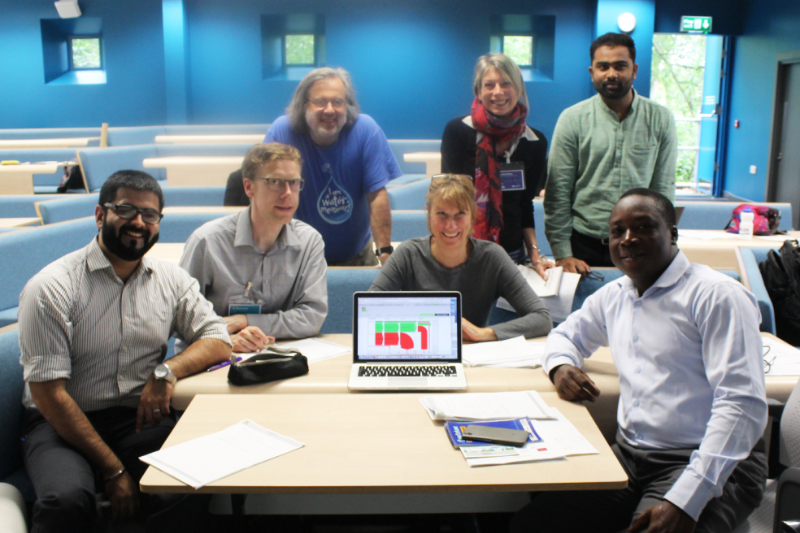 WorkshopPh...8-16.png
(Filesize: 806KB)
WorkshopPh...8-16.png
(Filesize: 806KB)
-
photo1_2017-08-16.JPG (Filesize: 175KB)
-
 Zambia.jpg
(Filesize: 225KB)
Zambia.jpg
(Filesize: 225KB)
Please Log in to join the conversation.
You need to login to reply- arees
-
 Less
Less- Posts: 2
- Likes received: 1
Re: SFD Promotion Initiative (SFD PI) - Project Updates (Shit Flow Diagrams)
The SFD Promotion Initiative (SFD PI) would like to update you on our most recent activities and news.
Event reports
The SFD PI team were in Chennai, India in February attending FSM4. We would like to say a special thank you to all those who joined us at our workshop. It was encouraging to see so many SFDs in posters and presentations. Check out the SFD PI presentations from Barbara Evans on the Lessons learned from developing SFDs at scale and from Suresh Rohilla on Institutional Capacity Building of Ganga Basin Cities on the FSM4 website . Be sure to have a look at the compilation of case studies that is available on that website, in which SFDs have also been used.
University of Leeds supported a workshop in Nairobi on May 5th where[/instagram] the new SFD graphic generator was used in an interactive workshop with 30 people from Nairobi City Water, the County Government, Civil Society and Private Sector and a first draft of an SFD Graphic was produced for the city using the new generator. This was very successful. There will now be a three month consultation period, with two consultants provided by African Population and Health Research Council (with funding from BMGF) and Sanergy supporting the preparation of a full SFD including a Service Delivery Assessment. University of Leeds will continue to back stop this process.
Resources Updates
We are happy to announce that our first set of FAQs has been successfully uploaded to the SFD portal. You can visit the page at sfd.susana.org/faq to find out what people have been asking us about SFDs!
The SFD PI has developed a review procedure with the aim of ensuring transparency and credibility of SFD Reports by evaluating the credibility of the sources used to develop the report. This process will allow authors to have their SFD Reports reviewed as a prerequisite for publishing the report to the SFD web portal. The document has been compiled and can be found in the SFD toolbox .
Upcoming!
In May/June Oscar Veses will be in Babati, Tanzania to help prepare an SFD as part of a DFID SHARE research activity looking at sustainable urban sanitation, in partnership with WaterAid. After that he will travel to Kafue in Zambia to support them in preparing an SFD as a tool to explore equity and effective services as part of a REACH research initiative funded by the DFID REACH project in partnership with LSHTM.
In June UofL will support a series of capacity building workshops in Ethiopia in partnership with WaterAid and Yorkshire Water, working with secondary towns to review SFD reports and develop action plans for follow up improvements in service delivery. This will culminate in a national workshop in Addis Ababa. UofL will coordinate with Christ Heymans at the World Bank to see if this can contribute to the ongoing World Bank support to cities.
Version 2.0 of the SFD Graphic generator is now complete and will be made available online in the coming weeks.
We anticipate 5 new SFD Reports to be published on our website soon.
The SFD PI has been working hard to improve and update the SFD manual and a new version is close to finalization. This will soon be made available on the SFD portal.
Did you miss us at FSM4? Well not to worry, we’ll be hosting a Capacity Development Workshop at the 40th WEDC Conference in Loughborough, England on the 28th of July and hope you can make it! For more information on the conference please visit: wedc.lboro.ac.uk/conference/40/ .
Other Stuff
We are sad to announce the departure of Claire Furlong as part of the SFD PI team. Her contributions have been a great benefit to this team and, undeniably, she will be deeply missed here. We wish her all the best with her work at UNESCO-IHE!
Are you interested in joining the SFD PI team? WEDC are currently accepting applications for the position of Research Associate in Urban Sanitation. More information can be found here: forum.susana.org/20-jobs-consultancies-i...orough-university-uk .
You can also follow our latest news on Twitter @SFD_PI
If you have any questions or comments, please contact us at This email address is being protected from spambots. You need JavaScript enabled to view it.
Kind regards
Angus
Please Log in to join the conversation.
You need to login to reply- cfurlong
-
Less
- Posts: 8
- Likes received: 2
Re: SFD Promotion Initiative (SFD PI) - Project Updates (Shit Flow Diagrams)
The SFD PI (sfd.susana.org/) would like to wish SuSanA a Happy 10th Birthday and to update you on our recent activities and news.
Join us at FSM 4!
The SFD PI team will be in Chennai, India for FSM 4, please come and join us at one of our events.
SFDs in the News
SFDs are mainstreaming in India! Two articles have been published that use and mention SFD in relation to faecal sludge management. The first article was in the Down To Earth magazine and highlights faecal sludge management in the towns and cities on the River Ganges www.downtoearth.org.in/coverage/blind-sp...n-namami-gange-56619 .
The second was in the Times of India and illustrates the use of SFDs as an advocacy tools blogs.timesofindia.indiatimes.com/toi-ed...-the-waste-business/
Resources Updates
Our new Graphics Generator is now online sfd.susana.org/data-to-graphic and short tutorial on how to use it can be found here:
On the 18th January a SFD PI webinar was hosted by SuSanA. It included an update on our activities in India by Dr Suresh Kumar Rohilla from CSE, a guided tour of the new Graphics Generator by Prof. Barbara Evans from the University of Leeds, and a review of our helpdesk by Dr Susanne Bieker from GIZ. This webinar can now be viewed:
New Reports
Three new SFD city reports have been published on our website:
Bahir Dar, Ethiopia sfd.susana.org/sfd-worldwide/cities/49
Holleta, Ethiopia sfd.susana.org/sfd-worldwide/cities/23
Santa Cruz de la Sierra, Bolivia sfd.susana.org/sfd-worldwide/cities/9
Other Stuff
Lara Fernandez Martinez an MSc student from the Water Engineering and Development Centre at Loughborough University (UK), successfully defended her thesis on “Using the Shit/Excreta Flow Diagrams (SFDs) - for modelling future scenarios in Kumasi, Ghana” www.susana.org/en/resources/library/details/2688
You can also follow our latest news on Twitter @SFD_PI
If you have any questions or comments, please contact us at This email address is being protected from spambots. You need JavaScript enabled to view it.
Kind regards
Claire
Attachments:
-
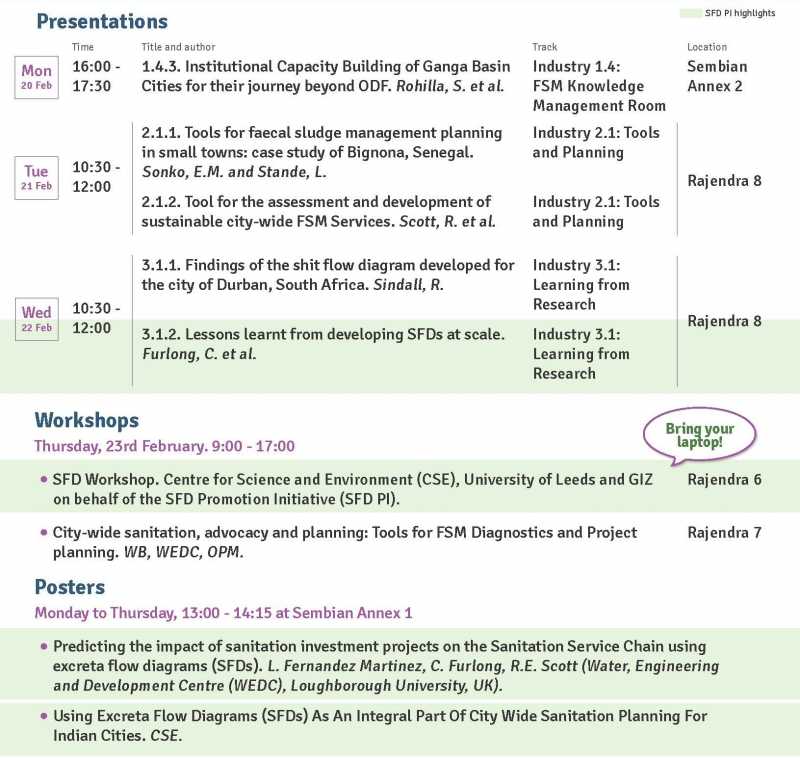 SFD_at_FSM...ge_2.jpg
(Filesize: 71KB)
SFD_at_FSM...ge_2.jpg
(Filesize: 71KB)
Please Log in to join the conversation.
You need to login to reply- Elisabeth
-

- Moderator
- Freelance consultant since 2012 (former roles: program manager at GIZ and SuSanA secretariat, lecturer, process engineer for wastewater treatment plants)
Less- Posts: 3372
- Karma: 54
- Likes received: 931
Re: SFD Promotion Initiative (SFD PI) - Project Updates (Shit Flow Diagrams)
In my role as moderator:
I have fixed the 3 links now in Cecilia's post above. It's working now.
Reminder to all: please don't put a full stop at the end of your URL when it's the end of a sentence (rather put a gap and then the fullstop of the sentence) and do check any URLs that you've inserted after making your post. Thanks.
In my role as interested SuSanA member: I like the point you are making that using only two colours (red/green) in these SFDs is extremely simplistic. Using in-between colours would be really interesting, but I suspect that it goes against the philosophy of SFDs which are meant to be highly simplistic advocacy tools (perhaps saying that any form of treatment is - as a start - better than no form of treatment).
But I also get a stomach ache looking at these graphs that state "safely managed" and "unsafely managed"... very black and white. But this is just my personal opinion; I have my doubts about SFDs but I seem to be proven wrong as they seem to be popular with decision makers and lots and lots of people are now keen to produce them for their cities. So... as long as they serve a purpose for awareness raising perhaps that's all that matters for now. (?)
Regards,
Elisabeth
Freelance consultant on environmental and climate projects
Located in Ulm, Germany
This email address is being protected from spambots. You need JavaScript enabled to view it.
My Wikipedia user profile: en.wikipedia.org/wiki/User:EMsmile
LinkedIn: www.linkedin.com/in/elisabethvonmuench/
Please Log in to join the conversation.
You need to login to replyRe: SFD Promotion Initiative (SFD PI) - Project Updates (Shit Flow Diagrams)
Thanks for responding to my suggestions, but I would say that each remains standing and valid.
Unfortunately, none of the links you mentioned worked.
Almost all of the letters in the new graph are much too small and do not take advantage of the space that is available. I suggest that the words occupy the entire width of each stream. In that way, the most important streams are the easiest to read.
I know that the idea of these SFD graphs is to summarize the situation, but I consider that these can include more of the reality of the situation. Dividing everything between red and green makes for simple graphs, but reality is more complicated.
In particular, in these graphs, if wastewater gets any treatment, it gets a green arrow and everything looks beautiful, even though we know that most wastewater treatment in the world is deficient, especially with respect to pharmaceuticals. If sewers only transport feces to the rivers, this is nearly the same as open defecation. I would like to suggest that the arrows showing treatment and discharge not just be red or green, but instead the color can range between red and green according to percent efficiency of the treatment. These colors can be obtained easily in Excel with "conditional formatting".
I would be glad to help, if you like.
(By the way, your response did not come to my Inbox, for some reason. I was lucky to find it in the Daily Digest.)
Best wishes,
Chris
Omaere Ethnobotanical Park
Puyo, Pastaza, Ecuador, South America
inodoroseco.blogspot.com
Please Log in to join the conversation.
You need to login to replyRe: SFD Promotion Initiative (SFD PI) - Project Updates (Shit Flow Diagrams)
Thank you so much for taking the time to review and comment on our project and resources. I will try to answer your questions:
1. We have developed a new version of the SFD graphic which addresses some of your concerns about the layout and readability. The black ovals for example are gone and the diagram is simpler and easier to read. Since December, the graphics can be produced using the SFD Graphic Generator. You may like to look at this new version here: sfd.susana.org/data-to-graphic . Based on user feedback we may consider making this graphic editable so that users can adjust font sizes etc., so your feedback in this regard is very helpful.
2. We have invested a lot of time in discussing the terminology used, which is based on functionality, as we have found that terms are used interchangeably for systems that have a different functionality. We have therefore developed a glossary to aid people: sfd.susana.org/toolbox/how-to-make-a-sfd . This is currently under revision, as we want to address some of the new features from the Graphic Generator.
3. The naming of the water bodies could be added on the editable diagram, but you need to consider that there may be many water bodies in a town and city, which may diverge and converge so this could be confusing. The labels in the graphic are only there to give the reader a rough indication of how close the pollution source is to the majority of the population in the city. The real detail is contained in the report, which the graphic is embedded into. In the report, you can describe the context and outcomes of the service provision.
4. We are also looking into how we can incorporate recycling and reuse into our tools, currently our focus has been on piloting both the methods and tools. Some aspects of reuse are covered in the report.
5. How clean is the wastewater that is treated? Again this is another issue that we have been exploring. Generally we have had to estimate this due to a lack of monitoring and data. The assumption we make to draw the SFD are clearly stated and justified in the report. The SFD reports are intended to be the first step for understanding the sanitation situation in a city. From it and depending on the priorities locally defined, you will be able to identify the additional data to be collected and research to be conducted, i.e. water quality, treatment efficiency etc.
Many of your points highlight the importance of not viewing the SFD graphic alone, it should be viewed with the report or executive summary where it is embedded. Here you can find some reports available: sfd.susana.org/sfd-worldwide . The SFD shows the pathways taken by excreta in the city, but the details and assumptions are in the report.
We hope that helps!
Kind regards,
Cecilia.
and the SuSanA Secretariat
Attachments:
-
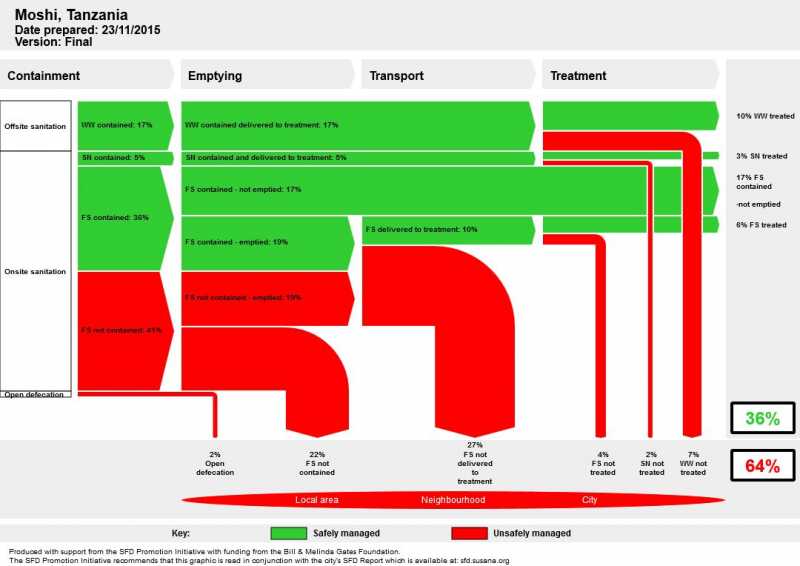 Moshi_sfd_diagram.jpg
(Filesize: 40KB)
Moshi_sfd_diagram.jpg
(Filesize: 40KB)
Please Log in to join the conversation.
You need to login to replyRe: SFD Promotion Initiative (SFD PI) - Project Updates (Shit Flow Diagrams)
Congrats to all involved in this important SFD initiative.
Please allow me to make some constructive suggestions:
(1) I find most of the numbers to be too small. I would leave out the black ovals and make each percentage as big as will fit on the respective flow. I know this sounds nitpicky, but the idea is to impress, so this should be as impressive and easy to read as possible.
(2) For the same reason, I suggest making each bit of text as brief as possible. For example, one could say "Sewer" instead of "Off-site Sanitation" (which takes a while to decipher).
(3) It would be good to name the water bodies that receive the treated and untreated waste. This would link each SFD to the people who are affected downstream.
(4) It would also be excellent to indicate the percentages that get recycled productively and the techniques that get applied.
(5) Finally, to what degree does the wastewater get cleaned (taking into account pathogens, pharmaceuticals, etc.)?
I would be glad to help develop en example of such a format, if you like.
Best wishes,
Chris Canaday
Omaere Ethnobotanical Park
Puyo, Pastaza, Ecuador, South America
inodoroseco.blogspot.com
Please Log in to join the conversation.
You need to login to reply- Forum
- categories
- Markets, finance and governance
- Cities (planning, implementation, and management processes)
- Shit flow diagrams (SFDs) / Excreta flow diagrams
- SFD Promotion Initiative (SFD PI) - Project Updates (Shit Flow Diagrams)












